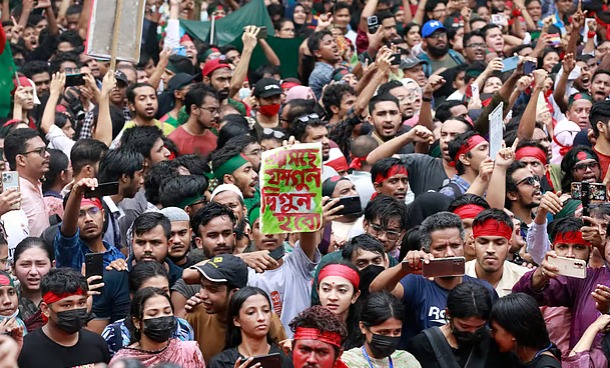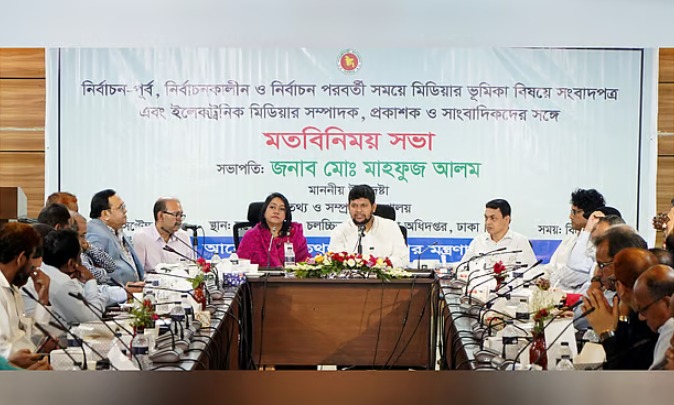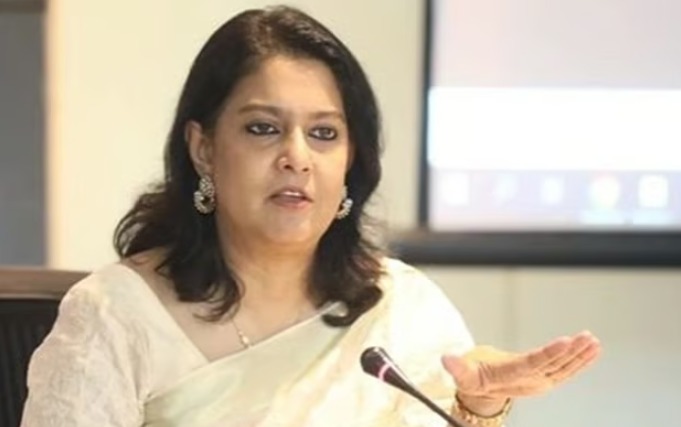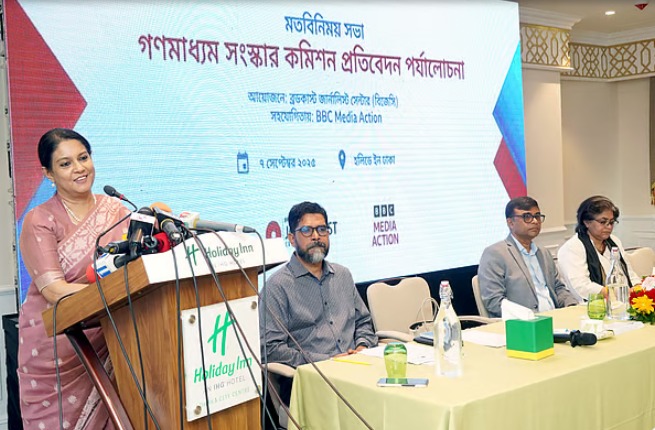Desk Report,
Bigger changes are possible
On August 2 last year, a treacherous march was held with the participation of numerous people. There, I said, ‘Hasina’s fall alone will not bring liberation to Bangladesh. It will not stop the growth of the authoritarian system again and again….The liberation war must be freed from the hands of the occupiers….The liberation war must be brought back into the hands of the people….The attack on the people with a dictatorship in the name of looting, injustice, corruption, and destructive ‘development’ will no longer continue….The resignation of the Hasina government is inevitable, and then the discussion of how a non-discriminatory democratic transformation will take place will be the main topic of discussion now….Students, teachers, professionals, workers, labor organizations, women’s organizations—everyone must work together on the path of this transformation and contribute.’ (August 2, 2024)
Bigger changes are possible
After a year, it seems that our weakness is evident in creating this path of democratic transformation on the path of establishing a non-discriminatory Bangladesh after the mass uprising. That is why the dominance and clamor of discriminatory undemocratic forces is increasing.
However, the importance of the extraordinary uprising of students, workers and the people cannot be underestimated for this reason. We have to move forward based on its success. The success is mainly threefold: One. The completely corrupt, oppressive, and powerful government that was in power by force has fallen. Two. As a result, daily torture, threats, state disappearances and extrajudicial killings have stopped in various fields including universities. Although news of these is being received again. Three. Discussions and debates have been created through numerous initiatives in different parts of Bangladesh. Everyone has something to say, worries about the future of the country, and has different opinions. The expectation of big change and being vocal for it is a great success. It is our responsibility to confront the various setbacks, doubts and fears that have been created in this.
In order to move forward, the characteristics of this mass uprising must also be taken into account: First, as before, the youth have played a leading role in this movement. Although numerous people, including left-right parties, students, women, and professional organizations, played a role in it, there was no direct political party leadership. Second, in this movement, women, working people, and people from gender-religious-ethnic minorities played an active and sensitive role in various sections of society outside of party identity. Third, digital technology played an important role, through which news reached the people quickly, videos of atrocities and resistance gathered people, and the protesters remained connected. Fourth, in this movement, numerous centers have been formed due to the lack of a clear position of the central leadership. Spontaneous participation and decentralization of leadership are its special features. Fifth, the desire for a Bangladesh without discrimination has been expressed in the crude hand-drawn drawings on the walls. Many songs, documentaries, writings, and cartoons, including creative works, have been created. There, the dream of an equal Bangladesh has emerged by eliminating all religious, ethnic, class, and gender discrimination.
Different Faces of Inequality
To fulfill this dream, it is necessary to specify the areas of inequality. In the last five decades, the capitalist economy in Bangladesh has developed noticeably, its size has increased significantly, infrastructure has expanded, GDP has increased manifold, import-export and remittances have increased significantly. But at the same time, class inequality has increased significantly. About 90 percent of working people are deprived of permanent employment opportunities. The country of the vast majority of people’s hard work has gone into the hands of a handful, and class domination has become strong. The share of the bottom 90 percent in GDP has decreased, and the country’s wealth has been concentrated in the hands of the top 10 percent, the bulk of which is still in the possession of the top 1 percent. Because of them, the country’s vast wealth has been looted and smuggled, the country’s sovereignty has been violated, and the country has repeatedly been trapped in the millstone of dictatorship. The country’s rivers, forests, mountains, air, and the very nature of life have been disrupted. Uncertainty, deprivation, and oppression continue in the lives of working people. The country’s education and healthcare system is one of the signs of growing class discrimination. Their continuous commercialization has reduced the real income of a large segment of the population. Many of them are going bankrupt while seeking medical treatment or educating their children. Secondly, gender discrimination in law and discipline at home and abroad. Various obstacles in areas such as property-child rights, sports-employment and movement are still strong. Women’s safe life, movement, education and work rights, respect, and the ability to make independent decisions are subject to various adversities. Gender diversity is under threat.
Thirdly, ethnic-linguistic discrimination. So far, the existence of ethnicities and speakers other than Bengalis in Bangladesh is not constitutionally recognized. In addition, their land, language, culture—everything is in the hands of the occupiers. On top of this, there is constant insecurity. Even after the mass uprising, they are being attacked.
Fourthly, religious discrimination. Not only people of different religions from the majority are victims of discrimination, but also minorities/weak groups within the same religion are victims of discrimination and oppression. The constant insecurity of the weak people inside and outside the majority is the result of the discriminatory system. Mob-terror against them by spreading rumors is almost a regular occurrence.
Successes and failures of the interim government
Forming the reform commissions and finalizing the reports in the past year is a major success of this government. However, the government’s major failure is not paying attention to the immediate reforms or the proposals for such reforms that the interim government can make in these reports. Prosecuting the July massacre was a major responsibility of the interim government. But writers, artists, journalists




